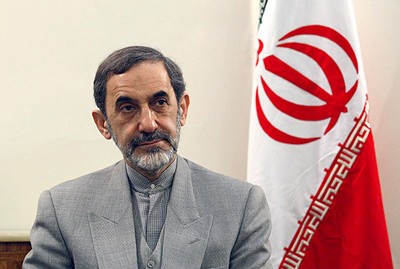January 03-2014

. . . big shift in policy
by Warren L. Nelson
The Supreme Leader’s senior foreign policy adviser proposed Friday that Iran hold bilateral talks on a broad range of topics with all the members of the Big Six—including the United States—a major departure from decades of policy.
Ali-Akbar Velayati, who was foreign minister for 16 years in the 1980s and 1990s and has been Ali Khamenehi’s senior foreign policy aide since leaving the Foreign Ministry, made the sweeping proposal in a television appearance Friday.
It did not seem likely that Velayati would make such a major departure from standing policy if it had not been approved in advance by the Supreme Leader.
“We aren’t on the right path if we don’t have one-on-one talks with the six countries,” Velayati said. “We have to talk with the six counties separately.”
The Islamic Republic already does talk to each of the six countries separately—except for the United States. So Velayati was just obscuring the fact that his proposal was really to talk bilaterally to the United States.
He was presumably speaking that way to try to make the shift more palatable to knowledgeable hardliners—and less comprehensible to the uneducated street toughs who form the bulk of the hardliners.
The regime has refused publicly for decades to talk to the United States except on rare occasions. Actually, that refusal has only applied to publicly acknowledged talks. The Islamic Republic has actually talked clandestinely with the United States frequently in recent decades. In fact, the most frequent talks were during the Administration of George W. Bush, who was officially reviled in Tehran for consigning Iran to the “Axis of Evil.”
Velayati also said, “It would be wrong if we were to bring the six countries into unity against us, since there are rifts among them over various international issues.”
To some that suggested the regime’s only reason for making the proposal was to try to divide the Big Six. But, again, Iran has been talking to five of them for years and has been trying to without success to split them. The only new proposal was to talk publicly to Washington and to discuss other topics than the nuclear issue.
There was speculation, however, that Tehran’s goal might actually be to scare the Arab states around the Persian Gulf who already fear that Washington and Tehran are verging on a veritable alliance in which the Arab countries would be the losers. The mere suggestion that Iran and Washington might discuss behind closed doors a coordinated policy on the Middle East would likely give Saudi and other Arab officials cardiac arrest.
But if the goal was not to frighten the Arabs, Velayati’s proposal could be to try to settle the wide range of issues the Islamic Republic has with Iran—human rights, terrorism, Syria, subversion. However, most analysts think it would be impossible to resolve all those issues without the Islamic Republic changing its fundamental philosophy. The regime was founded on the rejection of the prevailing world system—as exemplified by its most popular slogan, “Neither East nor West”—and, without overt and public hostility to the United States, the Islamic Republic would cease to be what it long has been.
Velayati pointedly did not name any topic that he thought Tehran should discuss with any of the Big Six countries in bilateral talks, which fed suspicions his proposal might be aimed more at the Arabs that at Washington.
The follow-up to Velayati’s proposal will reveal the purpose. If the Islamic Republic doesn’t follow up with Washington, it will telegraph that the real goal is to scare the Arabs.
Velayati’s only power base is as an aide to Khamenehi. Velayati ran for president in June and came in next to last in the six-man field with only 6.2 percent of the vote, a dismal showing.























